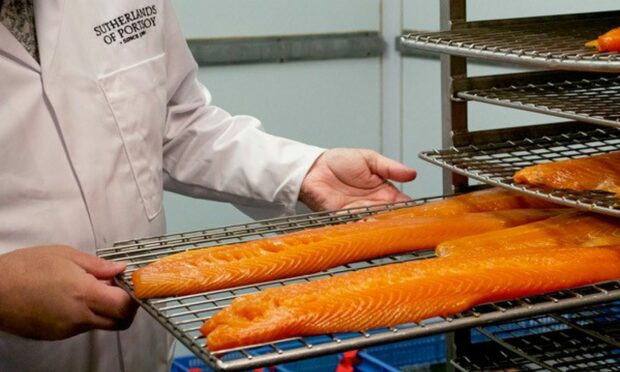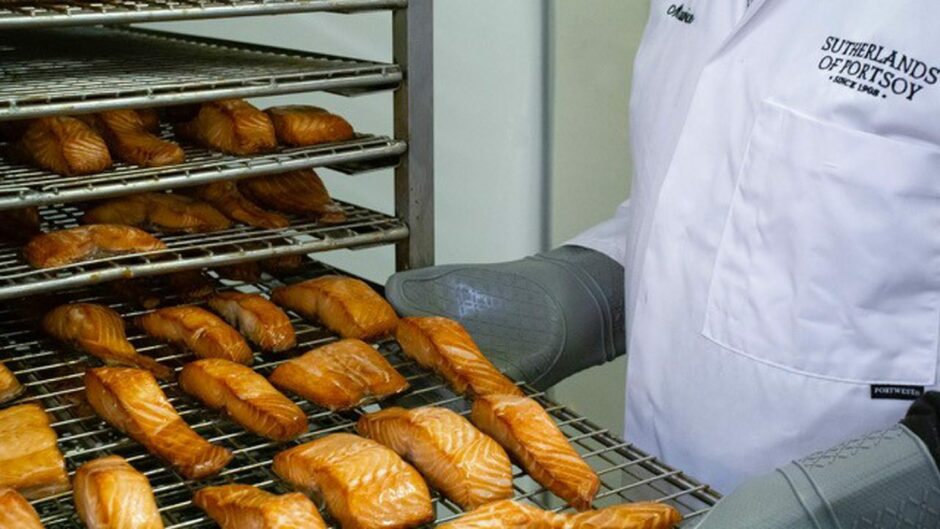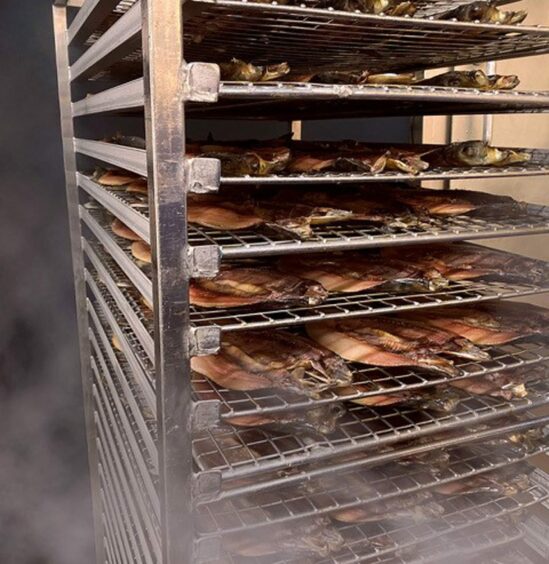Seafood firm Sutherlands of Portsoy was among successful applicants to the Scotland Food & Drink Net Zero Challenge Fund in February.
It received cash to pursue its ambition for a sustainable alternative for its smokery.
The fund gave grants to help firms become more environment friendly, while also matching the businesses with experts from academic fields relevant to their projects.
Sutherlands was paired up with an academic from the Rowett Institute, in Aberdeen, to help with its initiative of using waste from food and drink products in its fish smoking.
What started off as trialling the use of used coffee grounds in place of wood chips in the smoking process could lead to the firm using by-products from other food and drink production, including cider, gin and whisky.
This could have a knock-on effect to the sustainability of not only smoked fish production but also other sectors by using up an otherwise useless by-product.
We believe if it works with coffee waste, it will be as equally as successful with cider, gin and whisky waste.”
John Farley, Sutherlands of Portsoy.
Sutherlands director John Farley said: “Whilst the company boasts a significant history of being a traditional smokehouse, we have identified that to maintain our market position we need to look at our process and evolve a new more sustainable method.
“As an alternative to using oak wood chips, we decided after some intense conversations with a coffee company to use the damp coffee waste produced when roasting coffee beans.
“If effective, this would make that coffee a zero-waste product and could give our product a more distinctive texture and flavour.”
Mr Farley added: “After a number of trials and blind taste tests we were astonished with the results.
“We believe if it works with coffee waste, it will be as equally as successful with cider, gin and whisky waste.
“The Net Zero Challenge funding we have been awarded is allowing us to partner with the Rowett Institute to prove the science of why this works and, ultimately, provide us with an alternative more-sustainable way to smoke – a method which can be rolled out across the industry.”
Resilient food businesses can overcome post-pandemic challenges



Conversation